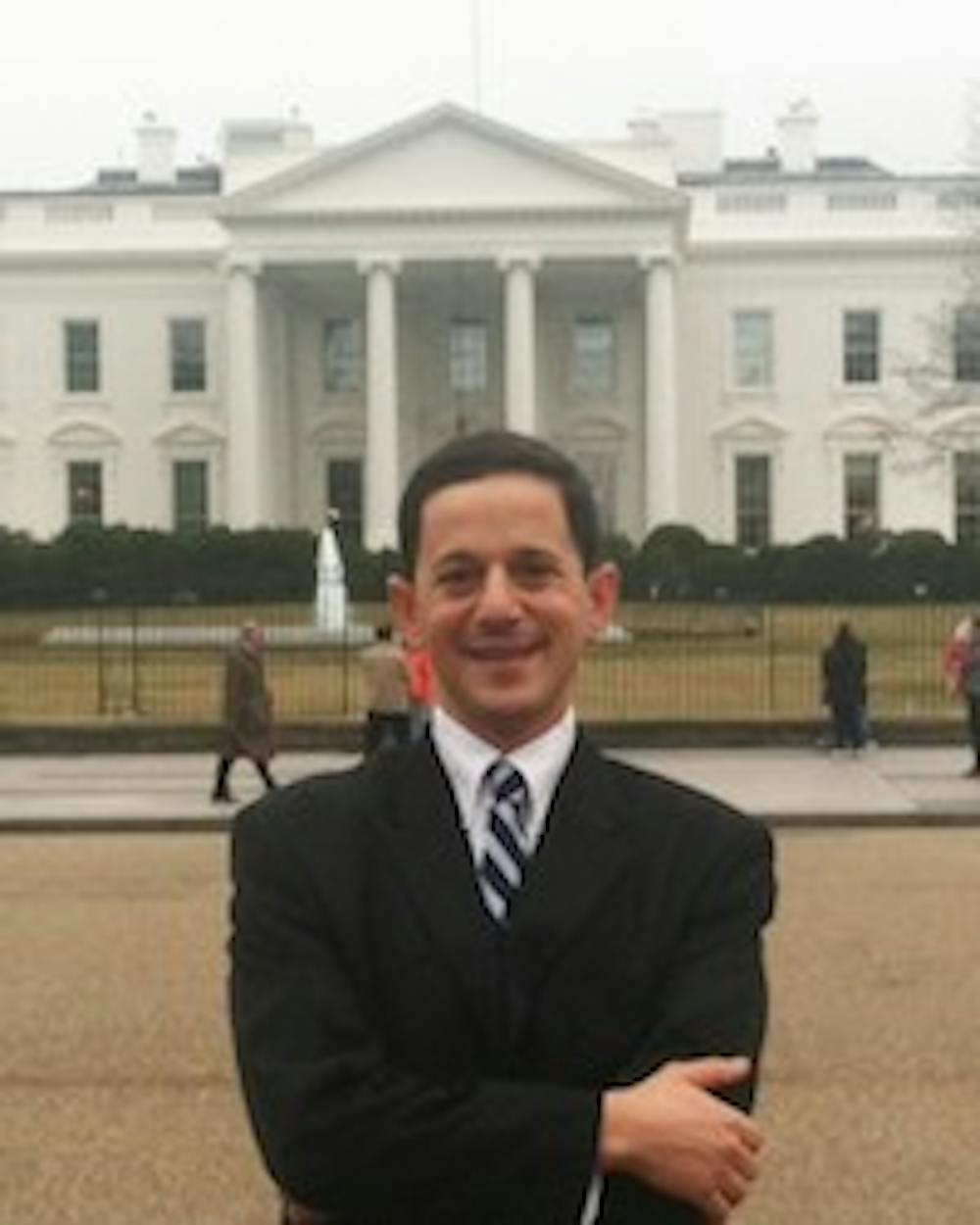University President Teresa Sullivan was among more than 100 college and university presidents and leaders in attendance at a higher education summit hosted by President Barack Obama and First Lady Michelle Obama last Thursday. The White House meeting aimed to discuss the underrepresentation of low-income and minority students in higher education.
Two University professors, Asst. Education Prof. Ben Castleman and Economics Prof. Sarah Turner, were also invited, though only Castleman attended.
Speeches by the First Lady and the President highlighted the importance of advising and aid in attracting and keeping low-income students in higher education and reiterated their dedication to the issue.
There were many intriguing proposals and ideas discussed at the summit, Castleman said in an email.
“An idea that I’m particularly excited about builds on the great work that the National College Advising Corps, including the Virginia College Advising Corps, which is based at U.Va., is doing to provide individualized college advising to low-income students,” Castleman said. “I’m particularly interested in ways that we can leverage interactive technologies, video chat, document sharing, etc., to make high-quality college advising available to students regardless of where they live.”
The University was directly referenced during Obama’s speech as an example of a university that reaches out to low-income applicants in novel ways.
“U.Va., for example, is going [to] experiment with new ways to contact high-achieving, low-income students directly and encourage them to apply,” Obama said.
Although the University is one of only a few universities that tours high schools across the country extensively and partners with many college access organizations, Obama was likely referring to the close interaction between the admissions department and faculty with regard to methods of attracting low-income students, Dean of Admission Gregory Roberts said.
“I think what we did was use faculty research on communicating with low-income students to drive our decision making [at the University],” Roberts said. The admissions department has been working closely with Castleman and Turner to improve outreach efforts, Roberts said.
Turner has co-authored research exploring why many high-achieving and low-income students do not apply to selective colleges. “These students forgo the generous academic resources, increased financial aid, and better collegiate and career opportunities that selective schools offer,” according to the abstract.
According to his personal statement, Castleman’s research examines “innovative strategies to deliver high-quality information about the college-going process to low-income students and their families.”
In Office of Admissions’ talking points for the summit, credit is explicitly given to Turner and Castleman for their input and influence.
“The [outreach] campaign is based on research by U.Va. researchers Sarah Turner and Ben Castleman who found that sending students’ personalized, practical, simplified information and encouragement can substantially increase college enrollment rates among disadvantaged students,” according to the documents. “The campaign further draws on research by the admissions office which found that a substantial share of underrepresented students who express interest in U.Va. don’t wind up applying.”
As a part of the University’s outreach campaign, Sullivan sent letters to Virginia principals of schools with a representation of low-income students greater than 50 percent, inviting them to Grounds in the hopes that the principals will encourage their students to apply, Roberts said.
Gordon Stewart, interim associate dean for academic programs, said the University constantly re-evaluates its outreach campaign to better serve prospective students.
“We ask ourselves what image we generate and project and ask ourselves what we can do to broaden the appeal of the University,” Stewart said. “We’re a public university, and we welcome mandates to broaden our reach.”
In this year’s application cycle, there has been a 15 percent increase in first-generation applicants and a 22 percent increase in African-American applicants, Roberts said.
Roberts also said it is too soon to tell how recent cuts to AccessUVa will affect these numbers.
“Issues of cost may not be affecting where students choose to apply,” he said.
Discussion at the summit also focused on what happens to low-income students once they apply and are admitted to selective colleges, especially in terms of advising. University advising is different than most schools in that advisors are teaching-faculty, Assistant College Dean Beverly Adams said.
“In general we are one of the few schools of our size where full-time faculty do engage in advising — many big schools have an advising center that is not housed by faculty,” Adams said.
Although recent surveys have indicated many undergraduates are dissatisfied with pre-major advising at the University, it is still unclear exactly what is dissatisfying and more questions need to be asked, Adams said.
The current University five-year plan includes a total redesign of the advising program.
In addition to the standard advising process, there is also a small, yet successful, transition program for low-income students called the Rainey Academic Program. Students are chosen from among AccessUVa recipients to spend the summer at the University to transition into a rigorous collegiate environment. Following the program, the participants are all assigned to the same association dean.
“They bring in students, often first-generation or [low-income],” Adams said of the program. Students receive “academic advice and they take two classes in the summer, not watered down in any way. That program is really good.”
Less than a week has passed since the summit and it is too soon to tell what effect it will have long term.
“The summit catalyzed many colleges and universities and organizations to commit to concrete initiatives that might have taken longer to materialize without the impetus of a Presidential summit,” Castleman said. “I am optimistic that there will be a sustained effort at the federal level to invest in policies and programs to support economically-disadvantaged students to succeed in college.”







